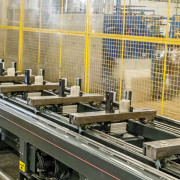Work Breaks in 2019
Work breaks – do you know what you’re currently entitled to? And if you do, how about in May of this year when the Government enacts changes laid out in the Employment Relations Act 2018? Whether you’re currently working in New Zealand, or looking to move here for work, this will be relevant to you. Read on!
What are the current rules surrounding work breaks?
Well…very loose. At present, the duration of your break at work isn’t defined by government. Rather, it’s defined by your employer and what they consider to be a “reasonable and appropriate” duration of break for the length of time you spend at work each day. In most cases, your employer will let you know how breaks are structured at their company and get your consent when hiring you.
Typically, in New Zealand, breaks are categorised into rest and meal breaks. The former are shorter breaks designed to give the employee a chance to chance to have a quick rest, whereas the latter is pretty self explanatory also. Meal breaks are typically offered on longer shifts that take up a significant portion of the employees day. In my experience, any of these breaks offered by an employer are typically amalgamated as it’s easier to keep track of and doesn’t disturb workflow as much as several smaller breaks might. Currently, an employer can offer you these breaks but you may choose not to take them. The employer is required to compensate you if you choose to not take breaks.
At present, our laws around work breaks could be described as very flexible. They allow for input from both employer and employee so that a mutual agreement may be reached that suits both parties. As such, the employee has some degree of influence over this facet of their work life. Head over to the MBIE site to view the full breakdown of how rest and meal breaks work currently in New Zealand.
You mentioned the laws are changing in May?
I did. That’s because the Labour goverment passed a law change in December of last year that re-instates mandatory breaks that scale with hours worked. For example:
- A 4 hour shift confers a mandatory paid 10-minute rest break to the employee that works it.
- A 6 hour shift confers a mandatory 30-minute unpaid meal break and a paid 10-minute rest break.
- An 8 hour shift confers a mandatory 30-minute unpaid meal break and two paid 10-minute rest breaks.
It’s not just breaks that are changing – there are also changes to trial periods, collective agreements, and more. You can read all about the full changes to employment law occurring in early May here. 
Which is better? Government-mandated breaks or employer-negotiated breaks?
To cut a long story short, there’s upsides and downsides to both approaches. Our previous National government pushed for more flexibility around work breaks – the main reason for this may have been that “one shoe doesn’t fit all”. By this I mean that while the traditional meal/rest break arrangement may work for some industries and companies, it is not practical for others. This current system also gives the employee some sway with regard to how long they feel their break needs to be. If nothing else, it does open up a healthy discourse between employer and employee to discern what will work best for both parties so that productivity and work enjoyment is maximized.
The changes coming in May certainly leave employer and employee without a lot of ‘wiggle room’ when it comes to breaks. However, it does prevent some employers from taking advantage of the leniency of the current system. You may recall a popular topic that swept the news in early 2015 where Australasian clothing retailer Cotton On controversially attempted to remove paid tea breaks for workers at their distribution center. This took place immediately after the original Employment Relations Amendment Act was passed in October of the previous year. This highlights how the current laws have the potential to be abused and why the May changes might be a preferable system due to the certainty and security they offer workers.
Which do you prefer? Set rest and meal breaks, or breaks decided on independently by the employer? Have your say below, or in our LinkedIn/Facebook comments.
Article by Dario Luca, Marketing Coordinator

















Leave a Reply
Want to join the discussion?Feel free to contribute!